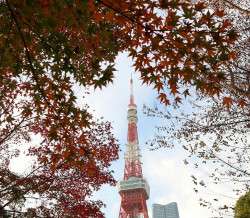
Originally published on metropolis.co.jp on February 2013

There’s a Little Britain character whose catchphrase is: “I’m the only gay in the village.” In the same way, every gaikokujin would like to say “I’m the only foreigner in Tokyo.”
This might sound reasonable since foreigners who move to Japan are probably not necessarily doing it to be surrounded by their peers, but this feeling can go to ridiculous extremes. At times I’ve been with a group of foreigners outside a bar, only for someone to say, “Better not go in that one—it’s filled with expats.”
Many Japanese people are fascinated by foreigners, be it because they are curious about other cultures, or because they feel an affinity with them after having spent some time abroad. These people often take a natural interest in almost anything a foreign person says, to the extent that “I like sushi” can lead to side-splitting laughter or sighs of amazement. This has a strange effect on some, and can provoke an attitude like, “It’s ok for me to get off on being a quasi-celebrity—but anyone else is just some chancer manipulating the natural kindness of the Japanese.”
People might get an ego boost from receiving this kind of treatment, without realizing that the interested Japanese people are probably just looking for language practice or a bit of cultural information. Any foreign resident in Japan is guilty of enjoying the attention at times, but after a while it can be more alienating than satisfying. Being in a unique and different country does not make you a unique and different person, but separating yourself from others like you works as a defense mechanism to maintain this illusion.
You only have to surf internet forums to see the extreme level to which this self-righteous “I’m a real Japan resident” attitude goes. Some poor guy asks about an English-teaching job and is treated as a loser who can’t make it in his home country. But these posts are projections of the commenters’ insecurity rather than attempts at genuine advice.
Being an English teacher is relatively easy and stress-free, at least in comparison to being a high-school teacher at home, but it isn’t great for one’s self-esteem as a long-term career choice. Many gaijin are in Japan to escape, be it from a mundane job, to have an “adventure,” or even to create a new persona. But fundamentally they will always be categorised as a “foreigner,” limiting their job opportunities and career progression.
When your self-image is not boosted by your career, it’s natural to find other means to do so. This is where the hierarchy of foreigners in Japan develops. Veteran residents—who sometimes describe themselves as “dinosaurs”—have been around for seven years or more and often deem themselves more authentic for that reason. They’ll meet some fresh-faced guy just off the plane and think something like, “Who does this person think (s)he is?” All the dinosaurs’ repressed insecurity about their decision to live in Japan indefinitely is projected onto the other.
Length of time isn’t the only means certain foreigners use to reinforce their feeling of self-worth, or the entrenched hierarchy. Others include Japanese-language ability, the number of countries/areas visited, or the number of Japanese friends they have.
It’s easier to feel superior by looking down on others than it is to admit that your career is going nowhere, or that a large part of the society you live in won’t ever truly accept you. It’s hard for a “dinosaur” to recognize that from the moment of setting foot on Japanese soil the newbie isn’t so far away from him or her, in terms of social status.
Foreign people in Japan will continue to size each other up like dogs: cautious, suspicious, and sometimes even angered. It could be said that writing this article is part of the same phenomenon it critiques. But in the end all that should matter is the wisdom of Depeche Mode—“People are People.”







